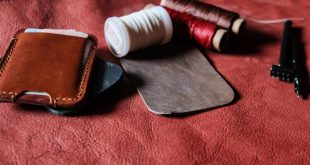Like any other skill, quilting requires long hours of practice and dedication to perfect it. Any professional that you come across would have made mistakes while learning to quilt. Therefore, if someone says that they haven’t made any mistake, they are most likely lying or are simply superhuman.
As a beginner quilter, you should read through the following tips to help you prepare beforehand and avoid these common mistakes.

- Prewash your Fabric
Preparing your fabric is an essential step that most quilters tend to forget or overlook. This might run into problems such as your colors would start running. Therefore, you should always wash your fabric beforehand is the precautionary statement on the fabric doesn’t say otherwise.
Most fabrics are made of cotton and are mostly machine washable. The washing would drain out any chemicals inside the quilt which were used during the fabrication process. Another added advantage is that it would prevent further shrinking of the fabric.
Fabrics such as silk and a few others shouldn’t be prewashed. It’s a good practice to consult the instructions at the bolt end to clarify any doubts in your mind.
- Don’t choose an overly complicated pattern
As a beginner, you shouldn’t start with difficult, intricate patterns as it isn’t an easy feat. Professional quilters make it seem a trivial task. However, they have years of practice backing them up.
As a beginner, you should know that even simple designs such as square boxes can be quite difficult to quilt in the beginning.
- Buy Enough Fabric before Quilting
Nothing can beat the frustration that you buy the perfect fabric, and after preparation and cutting of it, you find that you don’t have enough of it. You head back to the store and alas the fabric has been sold out. It’s quite a common mistake for beginner quilters.
Therefore, it’s important to always buy some extra fabric for yourself. It’ll give you the room to make mistakes and correct them. Even if it isn’t used, you can use it in any further project down the line.
- Press the Fabric Appropriately
Pressing the fabric properly before quilting is important as you shouldn’t leave loads of wrinkles on the fabric. Some people don’t use the appropriate iron to press the quilt, and they would press the fabric too hard.
It would stretch the fabric and would reflect on your finished product as well. Both mistakes can have troublesome consequences on your design. Therefore, use a quality iron for quilting and gently use it. In case of a persistent wrinkle, you should use some steam to take it out.
- Do not mix up fabrics
Although, as a quilter, we like to work with multiple fabrics to quilt the perfect design. However, it’s not recommended for beginners. You should stick with 100% cotton fabrics as your first quilts.
Also, it’s not necessary that exquisite designs are only made with multiple fabrics. If you have the right skill set and technique, you can make a quality design from any fabric solely.
- Have a consistent seam allowance
After spending some hours, quilting the perfect blocks, you sew them, and they aren’t coming together appropriately. The sizes vary, and the whole pattern gets messed up.
To avoid this mistake, you should use a seam allowance of ¼ inch. You should be consistent in this for all your blocks, so all your effort doesn’t go in vain, and the blocks are sewn properly.
- Choose Smaller Projects
As a beginner, don’t chew off what you can’t complete or later get frustrated about. Choose a quilt project that is small and would be done in an appropriate time. A simple and small project would help remain motivated throughout the quilting process.
- Always Remember: “Measure Twice and Cut Once”
It’s an old saying in quilting, and you should remember it by heart. You don’t want to waste your effort, time and money by cutting out the wrong sizes of quilting fabric. So be sure about your measurements and cut once you are sure you aren’t committing any mistakes.
- Backstitching is important
Don’t forget to backstitch your blocks and your complete design as well. You don’t want the stitches to unravel therefore always backstitch your fabric. It’s a key mistake most beginners tend to make which can be avoided with a little homework.
 World inside pictures Collect and share the best ideas that make our life easier
World inside pictures Collect and share the best ideas that make our life easier








